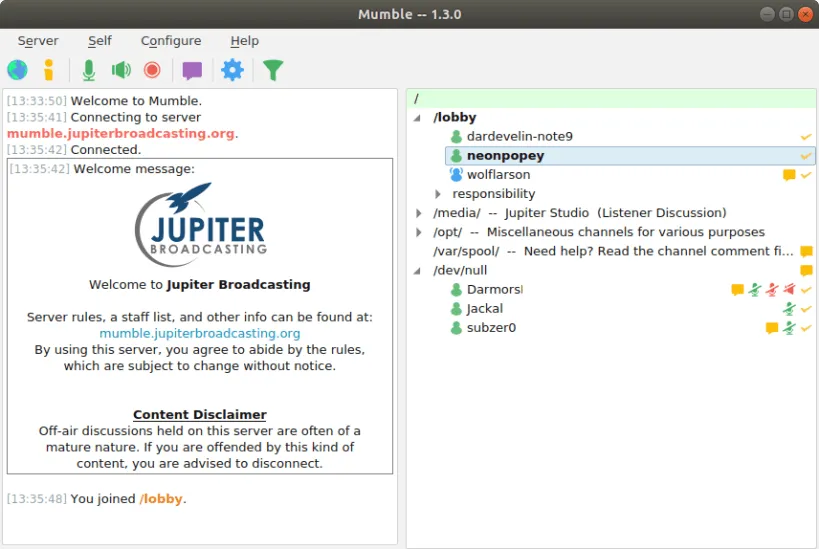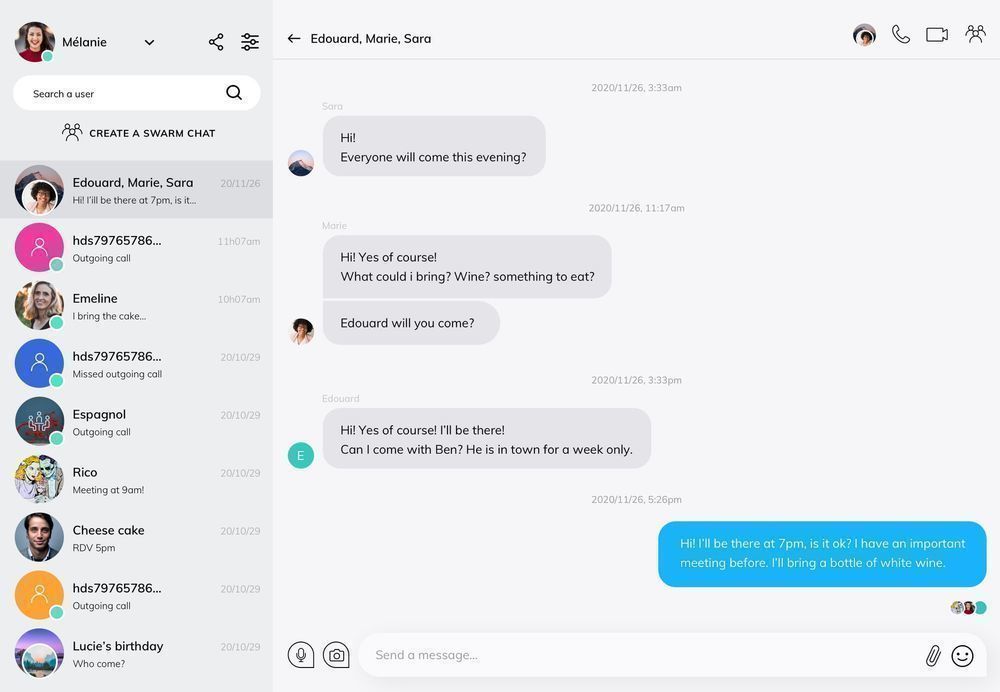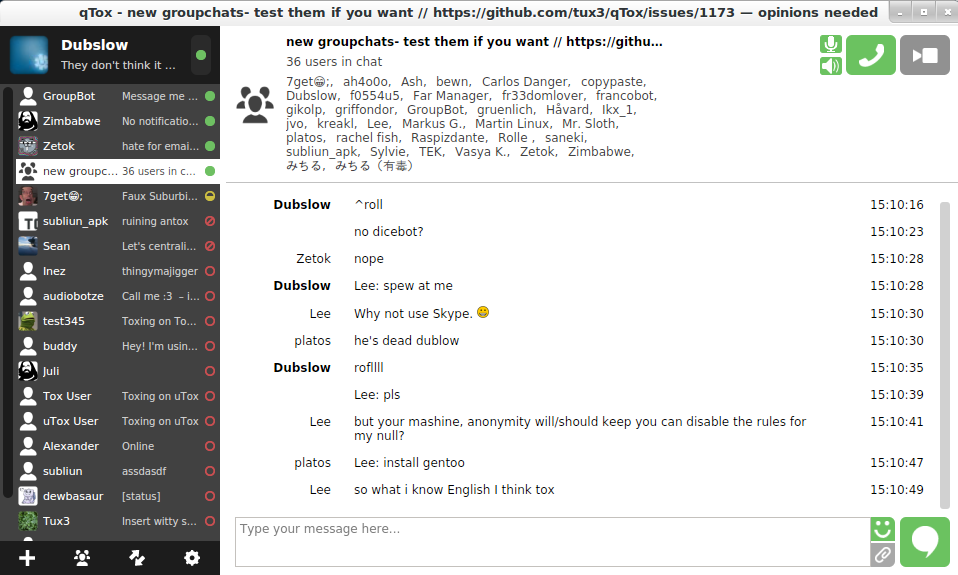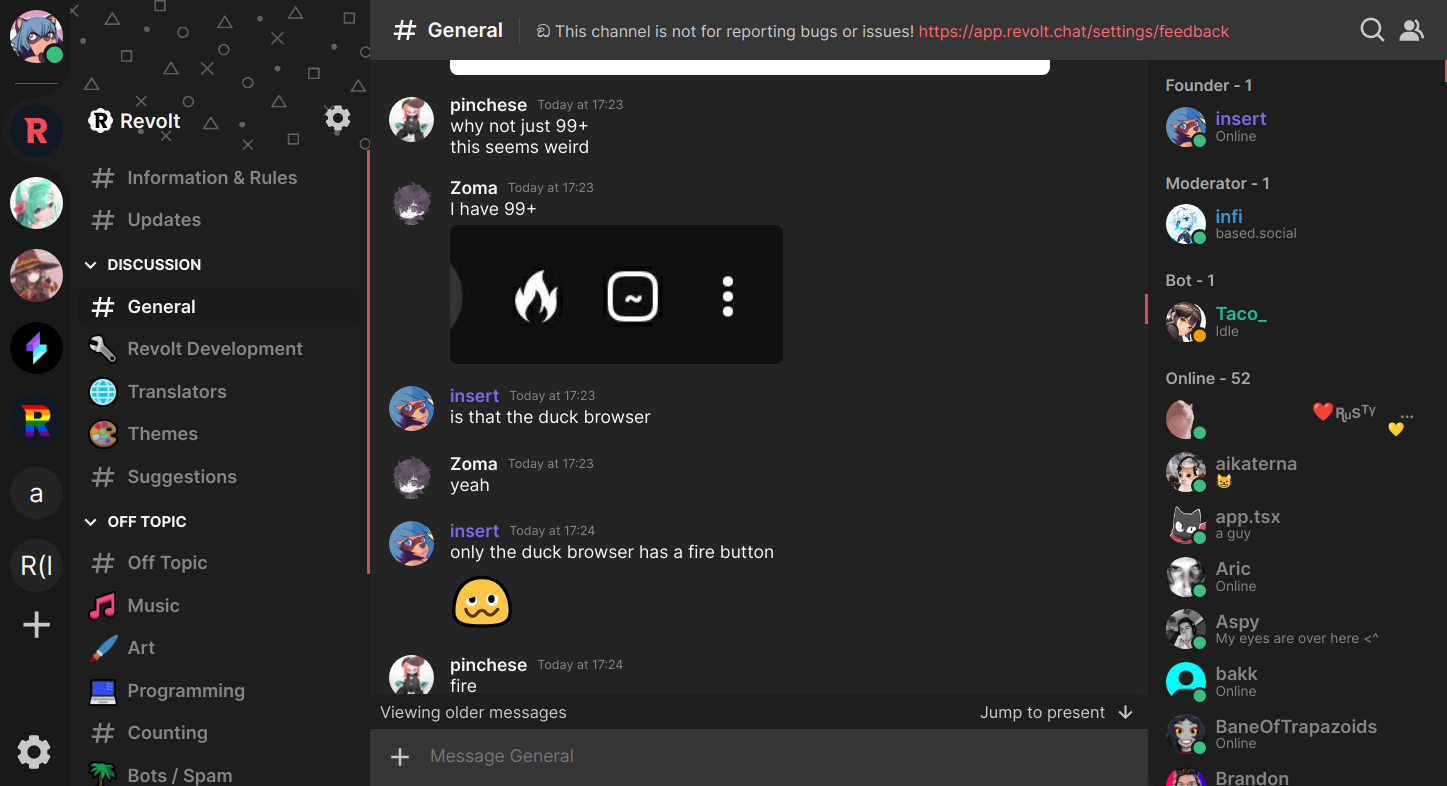Discord is a digital platform and VoIP instant messaging application that facilitates communication with voice calls, video calls, media sharing, file sharing, and text messaging in private chats and channels or groups.
Although Discord is very popular, there are several reasons some people don't want to use it e.g. it cannot be self-hosted. Today's article presents you with a list of viable opensource alternatives that offer all the features found in Discord and more listed in no particular order.
1. Element
Element is an open-source end-to-end encrypted messaging app with unlimited voice and video. You can choose where your messages are stored thereby having complete control of your data. It is built on Matrix - an open network of secure, decentralized communication that connects over 42 million users and boasts 80,000+ deployments.
Element is available on Web, iOS, and Android. With it, you can create communication and channels as well as join any public community. It has a beautiful interface, doesn't contain bloatware, and does not infringe on privacy rights.

2. Wire
Wire is a secure messaging, file-sharing, and conferencing end-to-end encrypted cloud app optimized for both private cloud and on-premise services. It is 100% open-source, independently audited, and ISO, GDPR, SOX, and CCPA-compliant. It features a beautiful user interface and is available on mobile, web, and PC.
With Wire, you can enjoy audio, video collaboration, and conferences. It's got a package for personal users, enterprises, and governments.

3. Mattermost
Mattermost is a free and open-source platform for VoIP communication and team collaboration. Unlike Discord, it is self-hosted and even features better support for LaTex, message threads, and Markdown.
Its main features include offering a unified platform for collaboration, integration with 3rd party tools including Jira, PagerDuty, and GitHub, flexible automation and playbooks, and total control of user data customization from the backend with plugins and open APIS, etc.

4. Mumble
Mumble is a free and open-source low latency, high-quality voice chat application. Ten years ago, it got the record for the first VoIP application to offer true low latency voice communication. Mumble boasts of privacy and secure communication for personal hosters as well as gamers and administrators without losing quality.
While it is designed for gamers, it can be adapted for different workspaces on Windows, Linux, Mac, Android, and iOS devices.

5. Matrix
Matrix is a free and open-source, open network that enables secure decentralized communication via direct chats, chatbots, and chatrooms using end-to-end encryption, formatted messages, synced conversion history, and read receipts.
Being maintained by a non-profit organization, Matrix and its protocol is suitable for production usage. Summarily, its features include messaging, end-to-end encryption, VoIP, bridging, IOT VR, etc.

6. Jitsi
Jitsi is a free and open-source video-conferencing application that can be built for teams and businesses. It features support for advanced video routing concepts including bandwidth estimation, scalable video coding, dial-in, simulcasting, recording, and audio.
Jitsi's text chatting feature is restricted to the web but features such as screen sharing, password-secured rooms, and streaming conference to YouTube live are free to use. With it, you can also share files, view statistics on talk time, and raise your hand for attention.

7. Jami
Jami is an open-source messaging application that prioritizes data privacy and enables direct VoIP communication. Formerly Ring, Jami features a modern design and is available on all desktop and mobile platforms.
Jami offers decentralization in order to facilitate end-to-end security and with it, you can create multiple groups/teams, stream and share live gameplay while communicating simultaneously, and conduct private group meetings.

8. Tox
Tox is an instant messaging app that enables VoIP communication. Tox is targeted at users who are supposedly fed up with apps that spy, track, censors users, or prevent innovation. It is free, open-source, end-to-end encrypted, and uses distributed servers.
Tox's main features include instant messaging, voice and video calls, screen sharing, file sharing, group calls and chats, and the complete freedom for users to do with it as they wish.

9. Zulip
Zulip is an open-source group chat app designed for users who are not always online to chat e.g. remote team members, managers, part-time workers, contractors, etc. It makes use of threaded messages by topic so that busy users can keep track of news important to them no matter the number.
Its main features include seamless integrations with over 90 3rd party apps including GitHub Heroku, Jira, Sentry, and Zendesk,

10. Revolt
Revolt is a free and open-source security-centric communication tool with a stringent philosophy at its core - "communication is critical. Privacy is essential". It is built on the same tech as other popular apps so users won't need to relearn anything and also customize the UI to their liking. It uses OpenPGP to authenticate users and is available on all platforms without any data aggregation.

11. Rocket Chat
Rocketchat, is an open-source Discord alternative that is designed to be user-friendly and versatile, with features that range from voice and text chat to server management and content creation. According to the developers, it is built for users who want "a Discord that works the way you want it to.

Conclusion
So there you have it, 11 cool alternatives with which you can replace Discord. Feel free to share your thoughts on your experiences using any of those mentioned above or the apps that you think deserve to be included. If you enjoyed this article consider signing up for our newsletter and don't forget to share it with people that would find it useful. Leave a comment below with a tutorial you would like us to cover.

